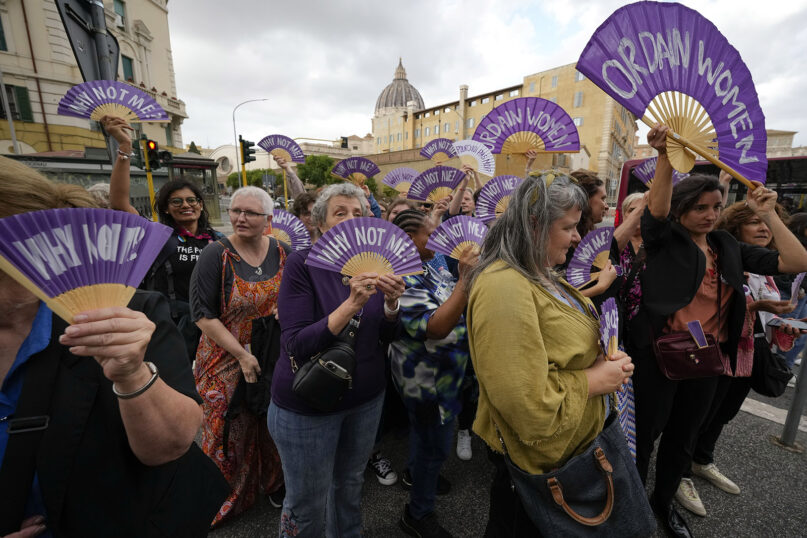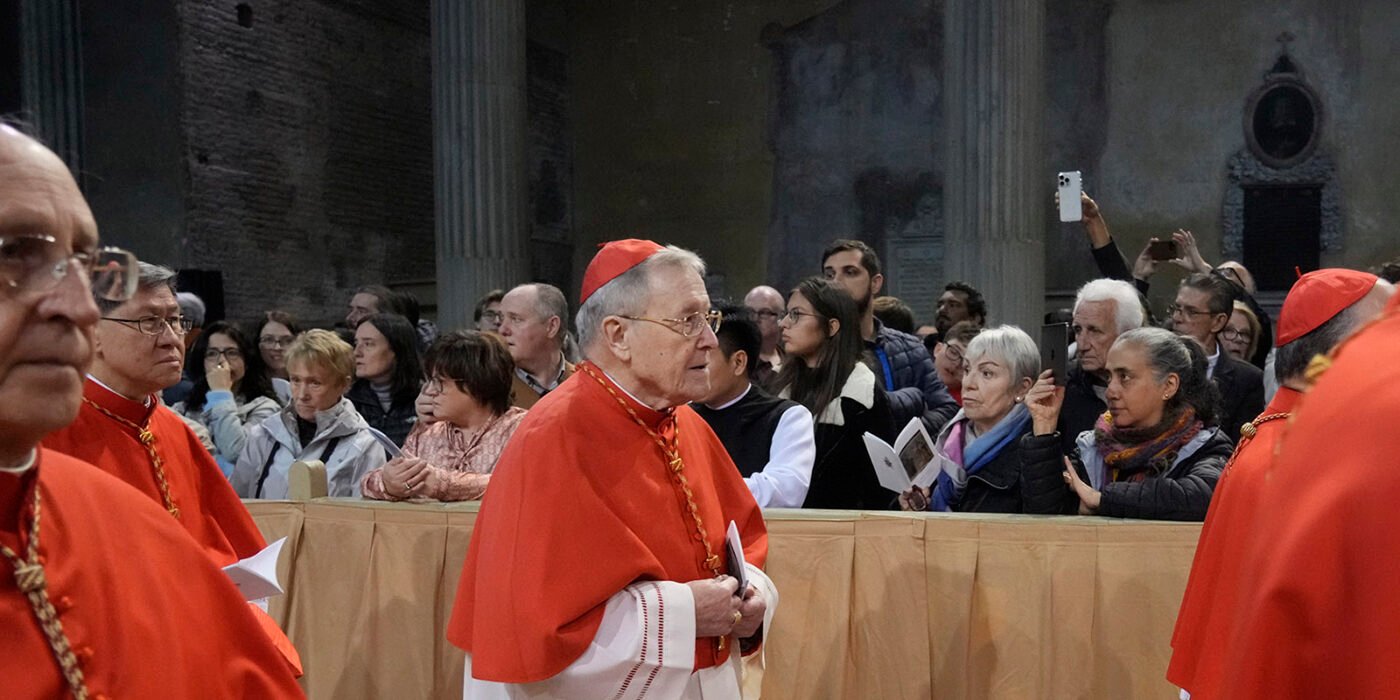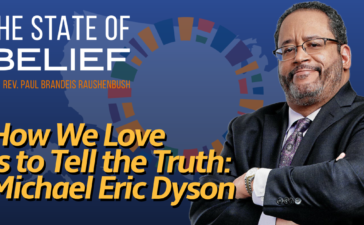VATICAN CITY (RNS) — Cardinal Walter Kasper, a respected German theologian and a longtime conservative voice at the Vatican, told a German church journal that he is in favor of allowing women to become permanent deacons, as debates over women’s roles continue to shake the church.
“I myself have struggled with the answer to this question for a long time,” Kasper told the theology magazine Communio on Thursday (Oct. 31), “but have since come to the conclusion that there are good reasons that make it theologically possible and pastorally sensible to open the permanent diaconate to women.”
“Each local church would be free to decide whether it wants to make use of this possibility or not,” he added, referring to national bishops’ conferences.
Known as a champion of conservative Catholicism, Kasper, a former head of the Vatican Council for Promoting Christian Unity, which promotes relations with other Christian denominations, also served on the International Theological Commission, which advised the Vatican’s dicastery overseeing doctrine.
Kasper has a history of backing the idea of ordaining women to the diaconate. At an assembly of German bishops in 2013, the cardinal presented the possibility of deaconesses performing a pastoral, charitable and liturgical role differing from that of male deacons and receiving a blessing instead of holy orders.
Even so, “for us over here it’s quite surprising,” said Renardo Schlegelmilch, editor in chief of DomRadio, Germany’s largest Catholic radio station. “Cardinal Kasper used to be on the forefront when it comes to fighting for reforms of the church. In his retirement years he has grown more conservative, especially criticizing the “Synodal Path” reform project back in Germany, which also called for the ordination of female deacons.”
The question of women deacons has been the focus of intense debate in recent months as a synod called by Pope Francis raised expectation that the church would entertain the possibility of ordaining women to the order. Deacons are allowed to preach during Mass, lead funeral services and perform baptisms, but unlike priests, they can’t say Mass, hear confessions or anoint the sick.

Advocates for women’s ordination hold banners during a protest in Rome just in front of the Vatican, where Pope Francis is holding the Synod of Bishops, Oct. 4, 2024. (AP Photo/Andrew Medichini)
In 2016, Francis instituted a commission to study the historical and theological questions about the female diaconate. He later put Cardinal Guiseppe Petrocchi in charge of another commission on women deacons in 2020. The findings of both commissions have remained a secret, and Kasper warned at the time that the possibility of women deacons would be bitterly fought.
“The fact that several commissions have been tasked with the question of reintroducing the diaconate for women, but none has come to a unanimous decision, shows that the question is controversial but also open,” he said, adding that the matter “has not been decided in a binding manner by the doctrinal authorities.”
At the recently concluded Synod on Synodality, Catholic bishops and leaders asked that the results of the previous commissions be made public. The final document of the synod stated that “the question of women’s access to diaconal ministry remains open” and pointed to the continued resistance to the empowerment and recognition of women in the Catholic Church. Francis, who in the runup to the synod said the question of women deacons is not “mature,” has asked that Petrocchi resume his work at the commission.
Opponents of admitting women to the diaconate say that, while deaconesses were likely present in the early days of the church, especially in the Eastern and Latin rites, their role was not comparable to the modern office of deacon, arguing that deaconesses were typically married to male deacons and not fully ordained as deacons, or else serving exclusively in all-female communities.
Kasper told Communio that to his knowledge “the ordination forms for deacons and deaconesses were the same,” and pointed to the inaccuracies of applying today’s ministerial and theological understanding to the practices of the past. He also called “problematic” opponents’ objection that the diaconate is a first step toward the priesthood and, conceivably, the episcopate. But the cardinal said these roles, and their ordinations, have always been distinct and responsive to practical needs and historical developments.
Kasper’s statement to Communio “demonstrates that the issue is not just an idée fixe of a few theologians or activists, but a central one for the future of ministry in the Catholic Church,” said Massimo Faggioli, a professor of theology and religious studies at Villanova University.
Kasper’s interview also galvanized Vatican observers because, as Schlegelmilch pointed out, “he used to be one of the most important unofficial advisors to Pope Francis.” He has also anticipated the current pope on some of his pronouncements. In 1993, Kasper drew the disapproval of Pope John Paul II and then-Cardinal Joseph Ratzinger, the future Pope Benedict XVI, for supporting the distribution of Communion for divorced and remarried couples. He offered his proposal again in 2014 at the cardinals’ Consistory in Rome.
Two years later, the pope published “Amoris Laetitia,” allowing divorced and remarried couples to receive access to Communion with the accompaniment of their pastor.
Aleja Hertzler-McCain contributed to this story.






